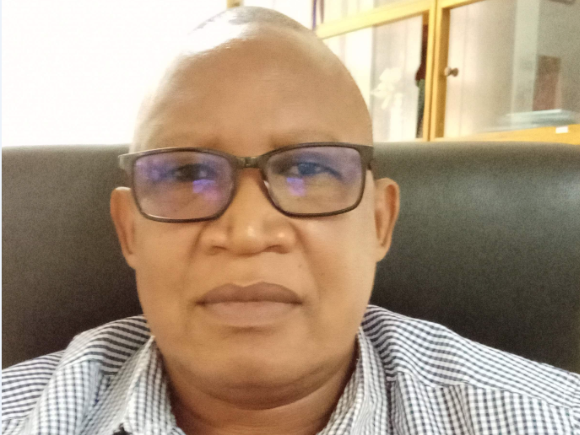
Dr William Kisinza's journey to become a renowned researcher and leader in the field of public health in Tanzania began when he first arrived in Liverpool in 1998 to pursue his Master's degree in Medical Entomology and Applied Parasitology at the Liverpool School of Tropical Medicine (LSTM).
After completing his Bachelor's degree in Applied Microbiology and Marine Biology at the University of Dar es Salaam, Tanzania, William was eager to delve deeper into his passion for vector control and tropical medicine, making LSTM the perfect choice for his higher education.
During his time at LSTM, William was a diligent and ambitious student who quickly made a name for himself as a leading figure in the field of medical entomology. He was awarded the Andrew Campbell Memorial Award in recognition of his achievements and dedication to his studies. With a newfound confidence in his abilities, William returned to LSTM from 2002 to 2006 to complete his PhD in Epidemiology, focusing on Vector Control using insecticide-treated bed nets in Tanzania. This research formed the foundation for much of the work he would later accomplish as a researcher and leader in the public health sector.
Since his time at LSTM, William has dedicated his life to improving public health in Tanzania through his work at the National Institute for Medical Research (NIMR), the largest health research institute in the country. He has been instrumental in the trials of major health interventions and the application of innovative technologies for vector control. William's hard work and dedication have not gone unnoticed, and he has been awarded the National Health Discovery Award in 2014 by the Vice-President of Tanzania for the discovery of a new Borrelia parasite causing tick-borne Relapsing Fever.
As William's reputation in the public health sector continued to grow, so did his responsibilities. He was promoted to the position of Head of the Vector Control Division at NIMR in 2015, where he was responsible for leading a team of researchers and technicians working on various projects aimed at controlling and preventing the transmission of vector-borne diseases in Tanzania. Under his leadership, the division made significant contributions to the development of effective vector control strategies and the implementation of innovative technologies, such as the use of larvicide to control malaria vectors.
William's impact on the public health sector in Tanzania was further solidified when he was appointed as the Director of the National Institute for Medical Research in 2018. In this role, he is responsible for overseeing all of NIMR's research activities and ensuring that the institute's work is aligned with the national health research agenda. William has continued to lead NIMR's efforts in vector control and tropical medicine and has expanded the institute's research portfolio to include other areas of public health, such as maternal and child health, non-communicable diseases, and infectious diseases.
In addition to his work at NIMR, William is also an active member of several international health organizations and networks, such as the World Health Organization, the International Society of Neglected Tropical Diseases, and the Tanzanian Society of Parasitologists. Through his participation in these organizations, he has been able to share his expertise and knowledge with others in the field and collaborate on international projects to improve public health in Tanzania and beyond.
Dr William Kisinza's journey to become a leading researcher and leader in the field of public health in Tanzania has been driven by his passion for vector control and tropical medicine. His dedication to his studies, combined with his hard work and innovative thinking, has allowed him to make a significant impact in the public health sector, both in Tanzania and internationally. This was recently recognised as he received a Certificate of Award from the Researchers, Academicians, and Allied Workers Union (RAAWU) in the recognition of his Patriotic Contributions in the field of scientific research in Tanzania. With his continued efforts and contributions, William is sure to continue to leave a lasting legacy in the field of public health for many years to come.